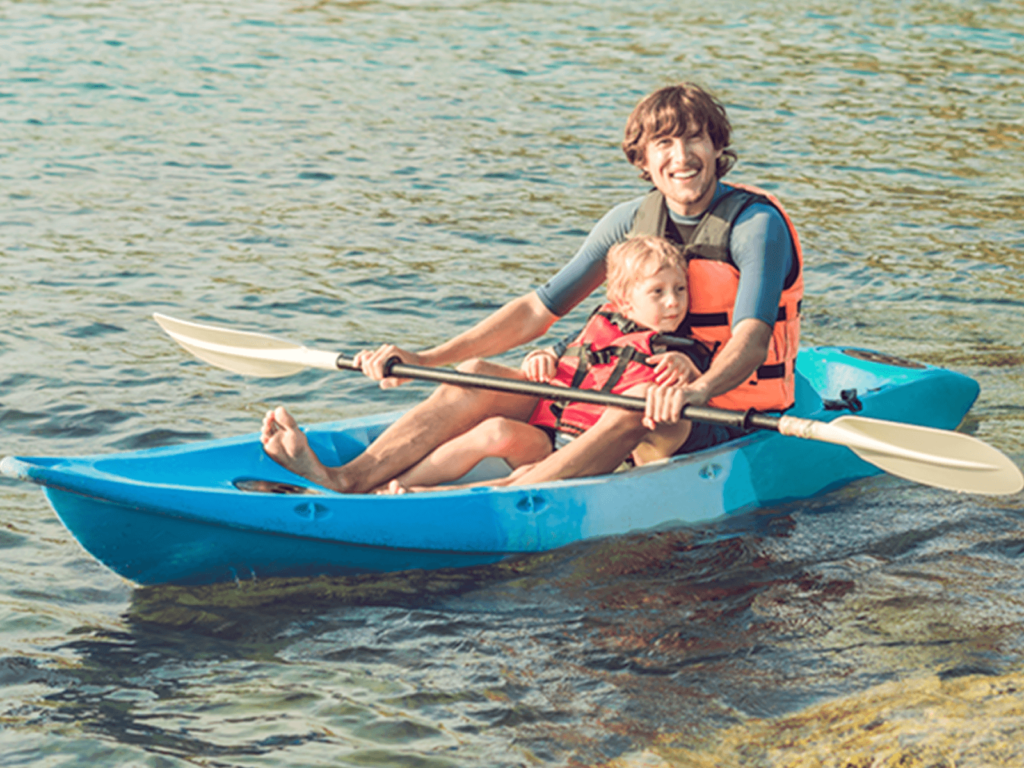How many kids do you think go to camp in the summer? According to the ACA (American Camp Association), 14 million kids and adults attend camp every summer. Camp is an $18 billion industry.
To understand why kids love going to camp, I spoke to five adults about their camp experience when they were kids. They shared with me how going to camp helped shape them into the people they are today. Here are some ways they benefited from going to camp:
Learned New Skills
Attending camp gives kids the opportunity to learn new skills they might not be able to learn anywhere else.
“I learned how to juggle and play guitar … I vastly improved while there each summer because one of the counselors offered daily lessons as a free time activity. Juggling lessons was also a free time lesson from one of the counselors who went on to become a puppeteer on ‘Sesame Street,’” says Andrea Simokonis.
“I learned swimming, boating and jewelry making,” says Kim Liberman.
“I learned to sail, leather work, water ski, camping (map reading, pitching tents, fire building), canoeing, woodworking and cribbage,” says Jake Wolf-Sorokin.
Discussed Social Challenges
Since camp is more interactive than a school setting, kids have a chance to discuss social issues.
“At camp we would talk about the hard issues that teens face like using drugs and alcohol, love, peer pressure … Every year there was a theme,” says Simokonis.
Developed Connections and Camaraderie
The social setting of the camp experience helps kids to make new friends and feel a sense of camaraderie with one another.
“At the end of the day we raced back to our cabins to have camaraderie with our friends while we got ready for whatever evening activity. In our cabin we had endless conversations. I don’t think anyone ever really slept. It was 20 of my closest friends all hanging out in our goofiest PJs, having girl talk and eating junk food all night. It truly was amazing,” says Simokonis.
“At camp I developed a set of friendships with fellow campers and counselors that continues to bring me joy and fulfillment to this day,” says Wolf-Sorokin.
Developed Independence and Confidence
Camp provides an environment that encourages kids to try new activities or select activities kids want to learn, which helps them to develop independence and build confidence.
“For me, [camp’s] enduring legacy was building independence, confidence and self-reliance by treating children as ‘grown ups’ by entrusting them with more responsibility than they [might] otherwise take on during the year. At camp, I got to choose what I did every day … This was a stark and refreshing contrast from my hyperscheduled life at school during the year. The camp’s noncompetitive focus encouraged me to take risks and push myself, knowing I could return to my supportive set of cabinmates and counselors, even if I had just wiped out on the water skis or lost a tennis match,” says Wolf-Sorokin.
“Camp always gave me a great sense of freedom, independence and community. I could participate in a wide variety of activities every day from land or water sports to art and music classes. I was away from home, which gave me a sense of independence, but I had the support network of my peers and the many different staff members. Being in this kind of setting, in the woods on a lake and sleeping in a cabin, gave me an incredible feeling of freedom,” says Linsey Pimentel.
“I liked the adventure and fun that went along with each day,” says Darlene Cofran.
“Every morning, the entire camp would get a sheet of paper with a Bible passage on it and then some questions to help you reflect on the verse and how it pertained to your own life. Then you could sit and meditate on it for 15 minutes. The camp was entirely present, yet completely silent everyday. It truly was magical to get 500 teenagers to sit in silence for that long,” says Simokonis.
Found A Mentor
Camp counselors often develop mentor relationships with their campers.
“The camp counselors shared their experiences as a teen and were truly mentors to me. I loved my counselors and I keep in touch with them. It’s kind of amazing,” says Simokis.
Developed A Career
Most of the people I spoke with either became a camp counselor as a teen or went on to be a camp director or serve on the board of trustees of the camp as an adult.
“I went on to be a counselor … for seven summers after I graduated high school and had just as much fun as a counselor as I did when I was a camper,” says Simokonis.
“My love for the camp experience led me to go back to work in the camp field. After sending my kids to camp … I then worked again at that camp as a counselor. After that I was offered the camp director role,” says Liberman.
“I attended … a boys camp … for six summers when I was growing up. I then worked there as a counselor for three summers, and I now serve on the board of trustees of the nonprofit organization that owns and operates” that camp, says Wolf-Sorokin.
Related
Washington Parent’s 2022 Camp Fairs!
Tips for a Successful Sleep Away Camp Experience
7 Tips for Creating Confidence in Kids

